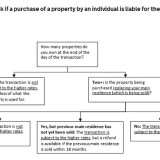Conveyancing Solicitors in County Durham
Compare Conveyancers in County Durham and get the best deal on conveyancing with Conveyancing Pro. We have a Conveyancing Solicitors Comparison Search and get the cheapest conveyancing quotes from the best Conveyancers in County Durham. We strictly use trusted Conveyancers that have a history of offering good service and positive feedback.
Do I require a Conveyancer?
If you plan on buying, selling or remortgaging a house, then you’ll be required to go through the legal process referred to as Conveyancing. Yes, you can do the conveyancing yourself, but it’s very complicated and take up a lot of valuble time (DIY Conveyancing). If you’re having a mortgage you’re mortgage provider usually require a Conveyancer on their panel.
That’s why the majority of homeowners instruct a Property Solicitor or a Licensed Conveyancer to handle the legal work. With our trusted Conveyancers the conveyancing part of moving is fast and easy, they also make it cheaper than you’d think (average conveyancing fees).
What is a Licensed Conveyancer?
Licensed Conveyancers are the same as Solicitors, except they just specialise in property law and are regulated by the Council for Licensed Conveyancers (CLC) in England and Wales. Most Conveyancing Firms handle the process online through email and through phone calls. They’re more popular than traditional Solicitors because they are more affordable (most of the time).
Using a Local Conveyancer in County Durham
Some people prefer to choose a local solicitor and meet face to face. These days the majority of conveyancing is done through phone and email, rarely do people meet they’re conveyancer in person. Using a local solicitor can be expensive, it’s far less expensive to instruct a nationwide online conveyancing firm that acts for properties in your area. It’s completely up to you who you choose to instruct, you do not have to use an Estate Agents ‘recommended’ solicitor.
Remortgage Conveyancing County Durham
If you’re remortgaging a property for whatever reason, you’ll need a solicitor to help you with the legal aspect. This is a simple and inexpensive procedure (usually around £300-£400). We compare remortgage conveyancing solicitors in and around County Durham.
The national average timescale for conveyancing is between 9-10 weeks. Conveyancing for simple purchase transactions can take just 4-6 weeks but a more complicated transaction can take much much longer to complete. Some transactions have been known to take over a year to complete, why? More info visit our How long does conveyancing take?.
If you are buying a property in County Durham (or anywhere in England and Wales), for more than £125,000, you will be subject to Stamp Duty Land Tax (or SDLT for short). This tax is calculated in brackets, like the UK income tax system. When you get a quote with us, we calculate the Stamp Duty (SDLT) you’ll have to pay for you. For more info visit our Stamp Duty Rates and Examples page.
County Durham is a county in North East England. The county town is Durham, a cathedral city. The largest settlement is Darlington, closely followed by Hartlepool and Stockton-on-Tees. It borders Tyne and Wear to the north east, Northumberland to the north, Cumbria to the west and North Yorkshire to the south. Historically, the county included southern Tyne and Wear, including Gateshead and Sunderland. The county has a mixture of mining and farming heritage, as well as a heavy railway industry, particularly in the southeast of the county in Darlington, Shildon and Stockton. There was a lot of mining in County Durham, therefore Property Searches are advised for areas near mines. It is an area of regeneration and promoted as a tourist destination; in the centre of the city of Durham, Durham Castle and Durham Cathedral are a UNESCO-designated World Heritage Site.
The current average value in County Durham is over £140,000. Terraced properties current average value is over £95,000 and semi-detached properties valued at over £130,000. Property prices in County Durham have increased 0.71% over the past year and are set to continue rising from 2017-2019.






